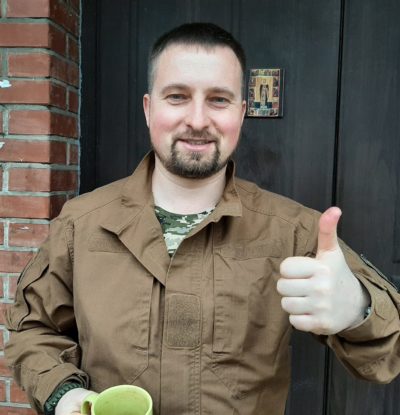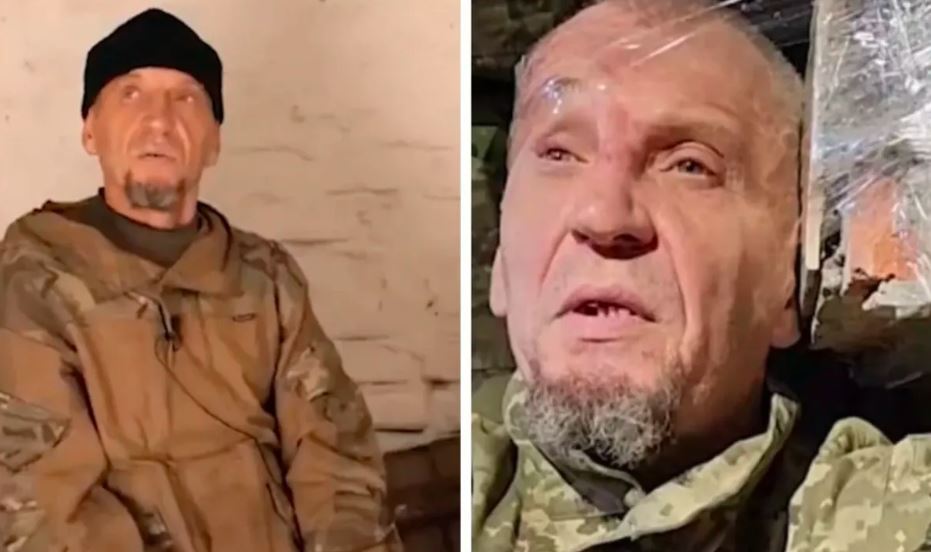Last November, the video of Yevgeny Nuzhin’s show execution with a sledgehammer by his very own Wagner comrades made a stir.
[boxright][/boxright]Wagner POW who surrendered to Ukraine executed by his own with sledgehammer
It drew attention to the brutal practices of Russia’s Wagner private military company (PMC), known for its ISIS-style executions in Syria and now, in Ukraine, where they play a crucial role in assaulting the Ukrainian city of Bakhmut.
It highlighted that Wagner would persecute traitors: after all, Yevgeny Nuzhin, who was taken as a POW by Ukraine, had told Ukrainian journalists that he opposed Russia’s war and was ready to fight on Ukraine’s side.
And finally, it raised questions among journalists and human rights activists: if Yevgeny Nuzhin was against Russia, how could Ukraine have exchanged him back to a certain death? Or was he kidnapped back to Russia, and if so, how could Ukraine’s prison system be so leaky?
Both versions to explain Nuzhin’s return to Wagner were put forward by Gulagu.net, a Russian project investigating torture in the Russian prison system, which cited its sources in Kyiv. Its founder, Vladimir Osechkin, even issued an appeal to Ukrainian President Zelenskyy, who asked to clarify whether this was somebody’s mistake, a glitch in the system, or Ukraine’s refusal to guarantee safety to Russians who surrendered.

We talked to Oleksandr Kravtsov, head of UAV reconnaissance with the 93d Separate Mechanized Brigade Kholodnyi Yar, who was there when the brigade took Yevgeny Nuzhin captive on 2 September 2022 near Bakhmut, to find out what really happened.
At that time, Ukraine did not know what to do with Wagner POWs, because they were not official military personnel of the Russian Armed Forces and did not have military documents, making it unclear if they were viable for prisoner exchanges. Nuzhin surrendered in the center of Bakhmut without engaging in battle and was subsequently placed by the Ukrainians in a basement (“Quite decent conditions, with straw, everything was proper. For a person who came to kill us, these are very good conditions.”)
Importantly, Yevgeny Nuzhin gave the Ukrainians the first detailed information about Wagner financier Prigozhin’s recruitment of prisoners for his PMC, as at that time, only fragments of videos were available.
Quite decent conditions, with straw, everything was proper. For a person who came to kill us, these are very good conditions. Right away, during the first interrogation in the center of Bakhmut,
“He told about all the stages of recruitment. The FSB officers come and recommend signing up [for Wagner], saying [Russian prisoners] will be amnestied. Mostly those who had big prison terms remaining signed up for this, because when you have only a year or two left, it makes no sense to risk your life. Although there was one prisoner who [signed up despite having been] sentenced for a minor crime, but he was told that he would get money and a clean biography, and this, of course, made him feel better. He was young and started everything from the beginning; he was around 20.
But [Nuzhin] was over 50. […] He started telling us a beautiful story, […] about how bad Putin’s state was, what evil it was. On the one hand, we could not believe him because he wanted to survive. He was a Russian policeman who ended up behind bars, on the other side. That is, he learned to transform from a guardian of order into a criminal.
Then we managed to find footage, mostly thanks to GUR [Ukrainian military intelligence], which showed that he approved of the ‘special military operation’ [Russia’s official term for the war against Ukraine]. There’s even a video [shared] in the Russian social networks proving that he did not come here to surrender and transfer to the International Legion. He came here to gain freedom, get money, and win against us,” Kravtsov explains.
This video directly contradicted the story that Yevgeny Nuzhin later shared with Ukrainian journalists, when he claimed that he signed up for Wagner in order to defect and enter the International Legion, a military unit for foreigners within the Ukrainian Army. This interview earned him the fame of a “good Wagnerite,” Kravtsov says.
“However, upon further research by GUR, after they interrogated him, revealed that it was all a lie. And he paid for it, as we can see, when they exchanged him, because he could not fight for [Ukraine], no one could trust him to handle weapons.
When Nuzhin was exchanged, Wagner’s men executed him, and he became a negative example for them. Did he want to be exchanged? Well, no one wants to be exchanged after saying such words against their own. He knew that he could face interrogations. We know from World War II that Soviet POWs returning to Russia were taken to concentration camps, meaning no one there expects to be greeted as a hero [after returning from captivity]. Of course, I think that when he was exchanged, he made excuses, saying that it was all under pressure, but he looked quite relaxed when he spoke those words on video, it was clear that he was not forced — he was speaking freely, swaggeringly, confidently,” Kravtsov notes.
Kravtsov says that the GUR exchanged Nuzhin for more than 20 Ukrainian soldiers.
How does this story add up to Ukrainian officials’ comments about Nuzhin? Ukraine’s Сoordination center for POWs stated following the circulation of the video of Nuzhin’s execution that he was on the exchange lists because he became a POW “voluntarily,” assuring that no Russian POW who surrendered voluntarily would be exchanged against his will. This statement appears to contradict 93d bridade’s Oleksandr Kravtsov’s description of Yevgeny Nuzhin surrendering “without engaging in battle.” The next day, President Zelenskyy’s advisor Mykhailo Podoliak claimed that the POW was exchanged to Russia “of his own free will” and that POWs can refuse to be exchanged to Russia. This contradicts the Center’s statement about Nuzhin being deprived of that option.
Regardless of the Ukrainian authorities’ contradictory statements regarding Nuzhin, Russian soldiers who truly want to surrender to Ukraine have every chance to do this via the “I want to live” hotline, Kravtsov says, providing the story of a 20-year-old soldier.
“There was a 20-year-old boy who served in [Russia’s] Belgorod Oblast; when his 2-year service was coming to an end, he was forced to go to Ukraine.
He traveled to the border in the Kupiansk district, within Kharkiv Oblast, along the border with Russia, and enrolled in the program ‘I Want to Live.’ He discovered this program, purchased a new phone number, registered through it, and informed them about his crossing. They guided him, and a green corridor was provided for him. Upon arrival, he waited, armed himself with two compasses, brought food; he surrendered nicely and explained everything well. Nobody will exchange him [back to Russia]. He is kept in good conditions,” Kravtsov explains.
However, there yet exist no rules that would allow an “adequate” Russian like this, one who has committed no war crimes, to join the International Legion on Ukraine’s side after a brief check. Only genuine opposition members who came from Europe or were already in Ukraine before the war are allowed to join, and that’s a bad thing, says Kravtsov.
Bolshevik Russians had used the practice of attracting enemy soldiers to defect during the Civil War of 1917: they invited White Guards officers to switch sides, offering them positions to command a battalion, even if they had fought against them just a day before. Ukraine needs unconventional tactics like this to defeat a larger enemy like Russia, believes Kravtsov, and the seeds are already there, in the “I want to Live” program. It just needs to be expanded so that democratic-minded Russians could fight for a democratic Russia or another state that will emerge in its stead. Creating such a program is easier said than done, but the Russians who already fight in the International Legion could help weed out any insincere defector.
“There will be some country there [where Russia is now], and people will leave there, peacefully, I hope. And it’s important for the neighbors who fought alongside, not against us, to be there,” Kravtsov sums up.
Video of ISIS-style execution of Ukrainian POW shared by Russian TG channels




